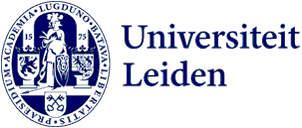Governance and Global Affairs
Problems in the world we live come and go, and are a source of debate in society, business and politics as well as a topic for researchers who aim to better understand mechanism in so many different areas. Effectively tackling these problems is a hard task for any party involved.
Governance and Global Affairs is one of seven Honours College tracks at Leiden University. Learn more about the Honours College and the tracks available through the page below.
About the Honours CollegeCurrent challenges require new thinkers and potential leading experts and (public) leaders to solve crises at global and local level. The Honours Track has the goal of educating students on how current problems play out among government, science and society and give them the skills to tackle some of these issues theoretically, based on academic literature, and practically, at a local level. The learning experience is thereby based on interactive activities, such as visits to the European Parliament, (public) organisations in Brussels and The Hague as well different simulation games.
Students are asked to go beyond the boundaries of their own field of study, look at themes, issues and trends in society or the world at large that require a combination of scientific disciplines and analytical lenses. The program links analysis of existing patterns to a future outlook. While using their own ‘home’ discipline to understand old and new issues, students are also expected to understand and integrate the contributions from other disciplines and think trans-disciplinary. Students are further involved in shaping the programme, in suggesting and preparing topics of analysis and discussion.
Video Honours College Track Governance and Global Affairs
Due to the selected cookie settings, we cannot show this video here.
Watch the video on the original website orLearning Aims
Students who have successfully completed this program are able to:
- Understand the relationships among government, science and society and how it affects public problem-solving power;
- Apply theoretical knowledge to challenges in the real world;
- Demonstrate personal leadership capacities based on theoretical and practical insights;
- Combine knowledge from their own field of study with theories from the courses;
- Reflect on global challenges from various academic perspectives and arrive at possible solutions;
- Use bilateral and multilateral negotiation skills;
- Understand and use techniques and methods such as visualization, stakeholder analysis, integrative negotiation, framing / reframing and their relation to problems;
- Give policy advice to real-world policy makers on some of the problems they struggle with based on research and literature.
For whom?
Honours College Governance and Global Affairs is open to all students that meet the Honours requirements. In addition to good performance in the own BA we expect a strong motivation to tackle global challenges and to succeed in the Honours Track, that is to finish it. You should be willing to develop your personality and personal leadership and willing to connect with the other students. Connection brings new insights for everyone. You should feel comfortable doing the track in English. This track is especially interesting for students who would like to explore the relation between theory and practice, to acquire the tools to connect these and who like to work in an innovative and multidisciplinary setting.
Contact coordinator
Annette Righolt a.j.e.righolt@fgga.leidenuniv.nl
What Makes This Programme an Honours Track?
Current challenges require new thinkers and potential leading experts and (public) leaders to solve crises at global and local level. This honours track has the goal of educating students on how current problems play out among government, science and society and give them the skills to tackle some of these issues theoretically, based on academic literature, and practically, at a local level. The learning experience is thereby based on interactive activities, such as visits to the European Parliament, (public) organisations in Brussels and The Hague as well as different simulation games.
Students are asked to go beyond the boundaries of their own field of study, look at themes, issues and trends in society or the world at large that require a combination of scientific disciplines and analytical lenses. The programme links analysis of existing patterns to a future outlook. While using their own ‘home’ discipline to understand old and new issues, students are also expected to understand and integrate the contributions from other disciplines and think trans-disciplinary. Students are further involved in shaping the programme, in suggesting and preparing topics of analysis and discussion.


